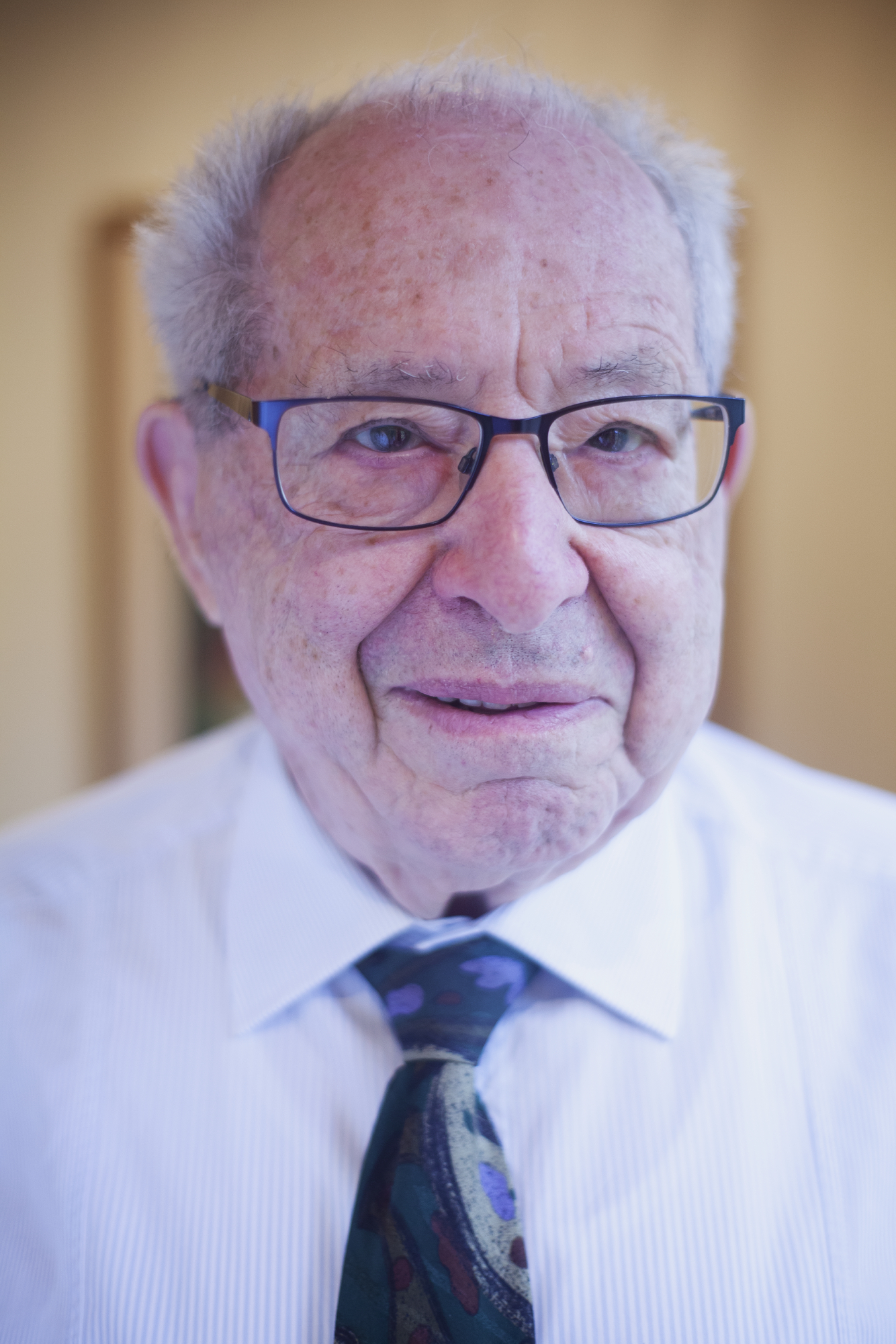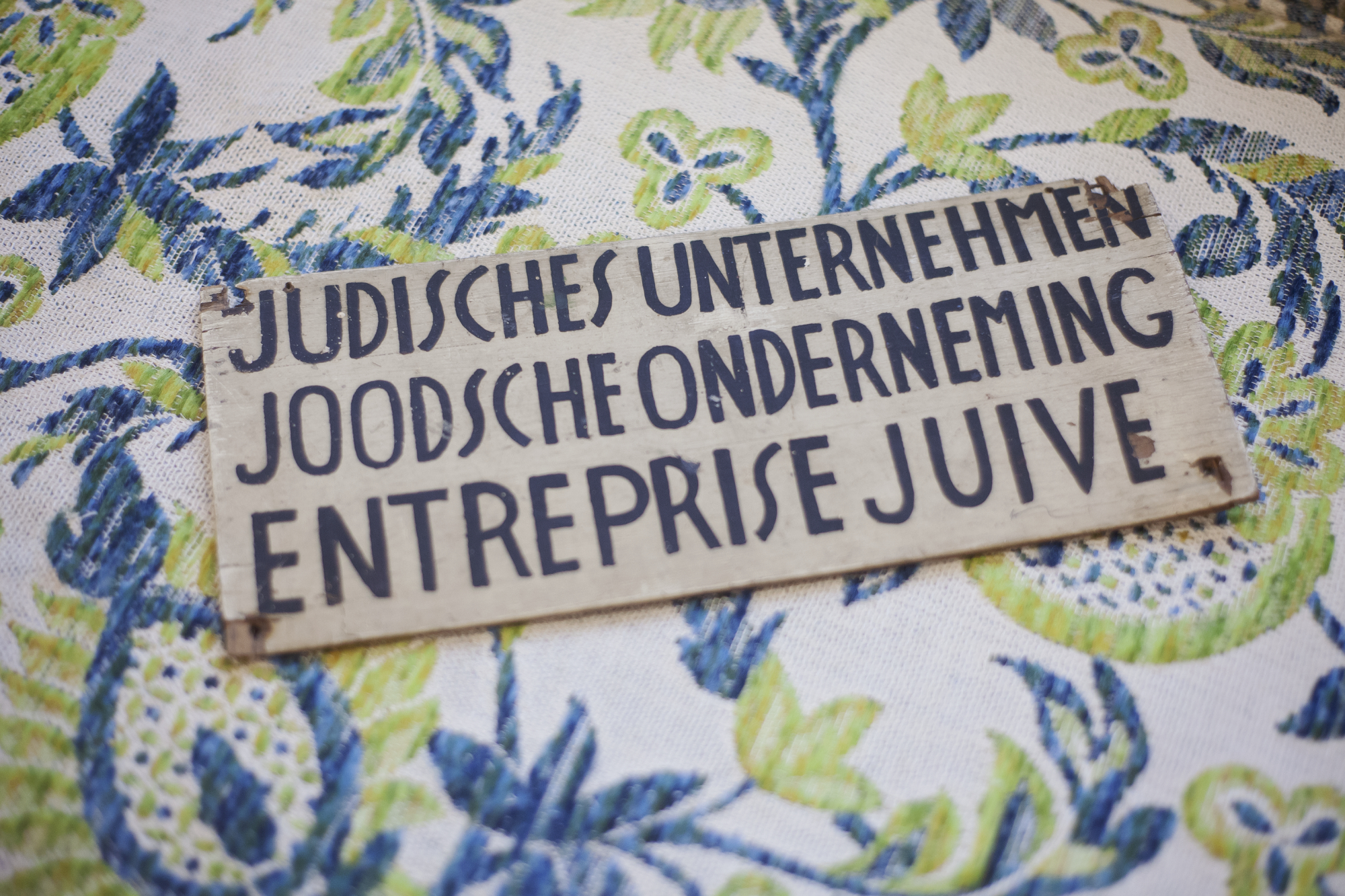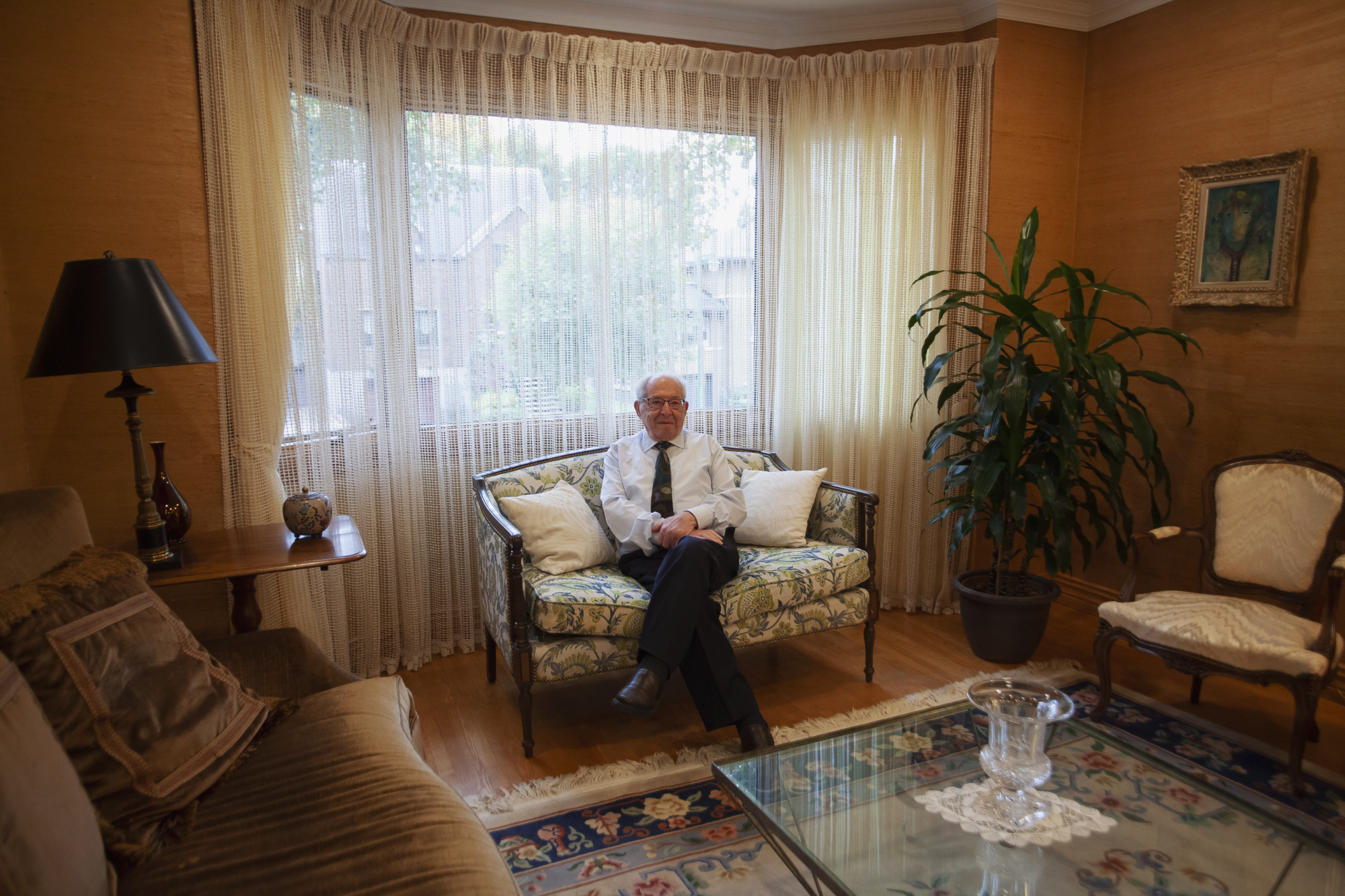
Davy Trop
A sign of discrimination
Davy Trop’s family lived in Ghent (Belgium) and owned a chemical dye factory. In November 1940, the factory was requisitioned. While his father continued to work there until he was arrested in September 1942, Davy and his brother hid under false identities to avoid arrest. After liberation, the family returned home to find their house locked and marked with the seal of anti-Jewish laws. A neighbour kept for several decades the sign pictured below before returning it to Davy. Today, it symbolizes the many hardships endured by his family.

Listen to the sign's story
On the day of liberation, September 6, 1944, my father returned home, he found it completely
emptied of everything that had been in it. On the front was this little sign that identified the
business as a Jewish business. It had been posted in 1941 and left in place, even in the absence
of any activity. And a neighbour, who was also a great friend of my parents, came at that time to
take the little sign and kept it for years while I totally forgot about it. It was only seven or eight
years ago that I got in touch with him again, and he told me that he still had this little sign, and
he gave it back to me at that time. My father founded the business in 1928. He had arrived in
Belgium in 1926, after receiving an invitation from a tanner to work in his laboratories. But,
after a year when his initial contract expired, he decided to start his own business. This took him
a few months, the time to raise some capital and gain support. So, he then started a chemical
company, which mainly supplied leather tanning products and also dyes for a local textile
industry. The company had about forty employees, of which about ten worked at the factory in
the manufacture of tannins, dyes, and then there were of course the travelling salesmen, the
employees who worked at the factory, my mother took care of the general accounting while my
father took care of the procurement and also supervised the laboratories, etc.
During the first years of the occupation until my father’s arrest in March 1943, the house was
occupied, and the workshops were requisitioned and continued to work. My father was no
longer the director, but he had been forced to work there as a chemist. So, at that time, to make
essential products for local consumption with newly hired workers.


